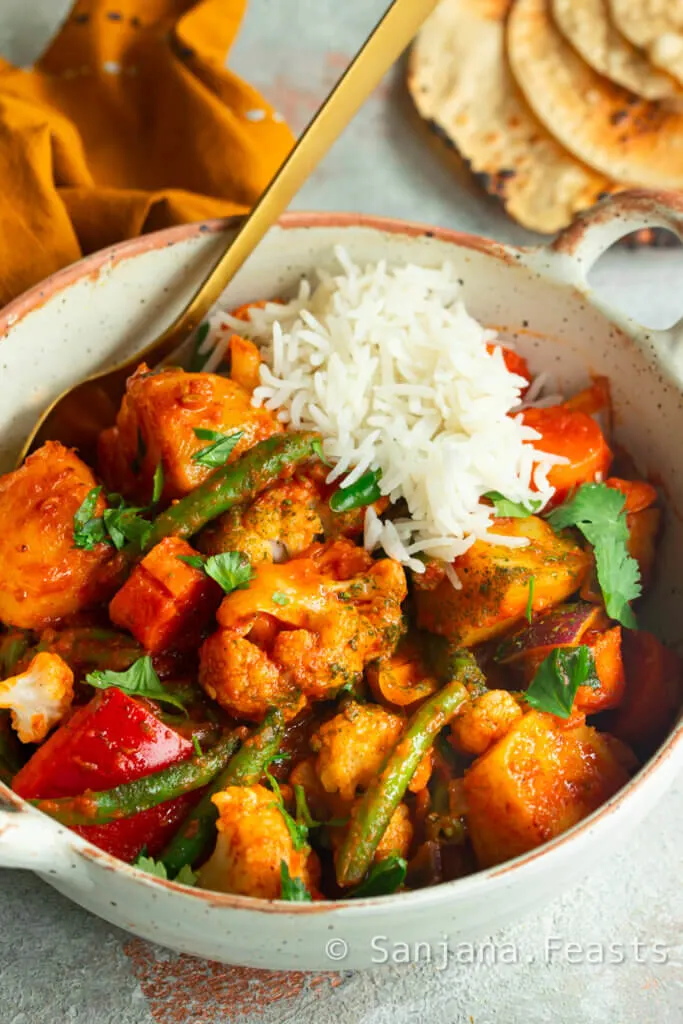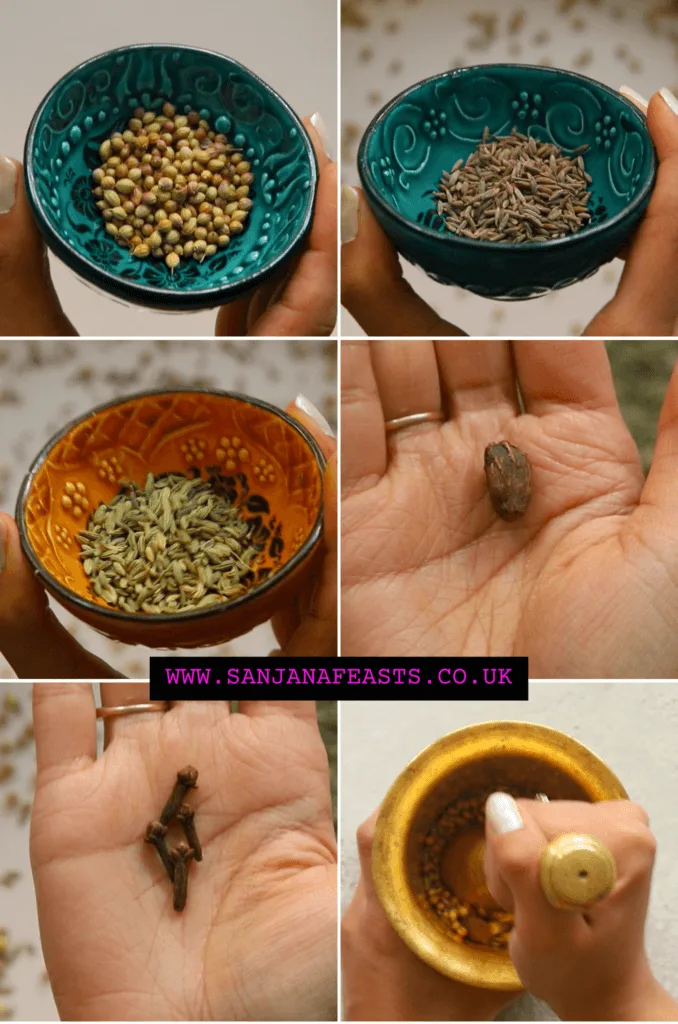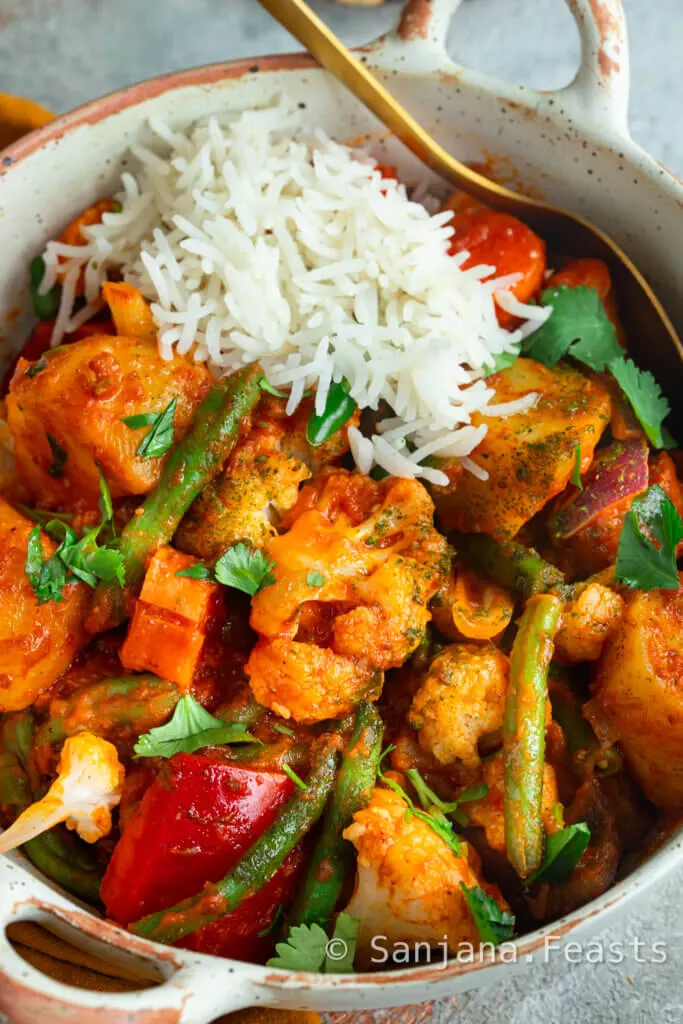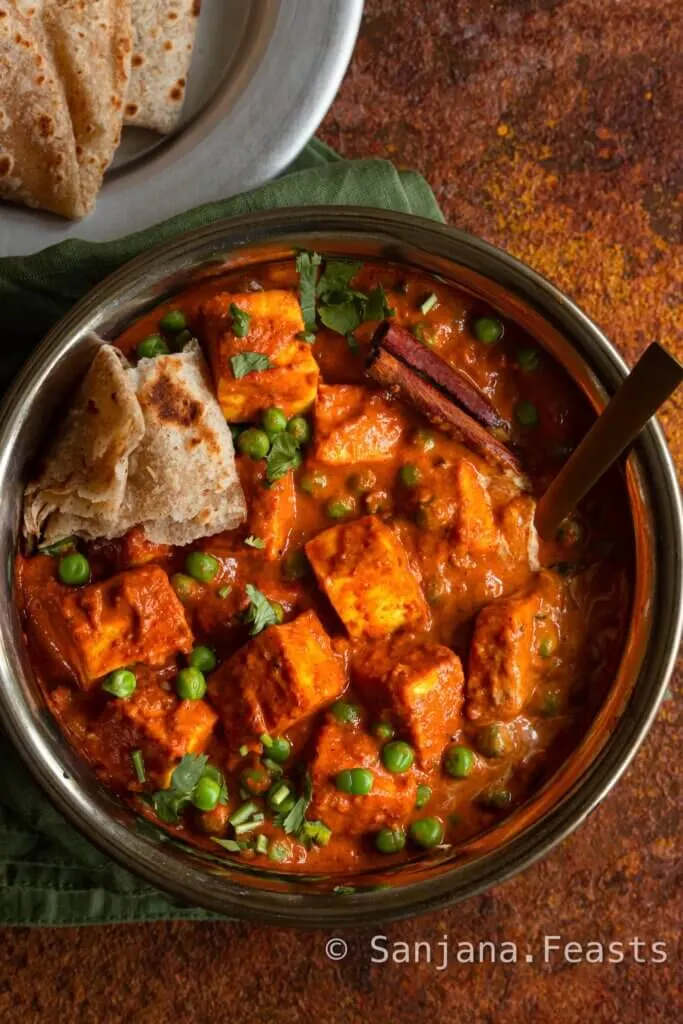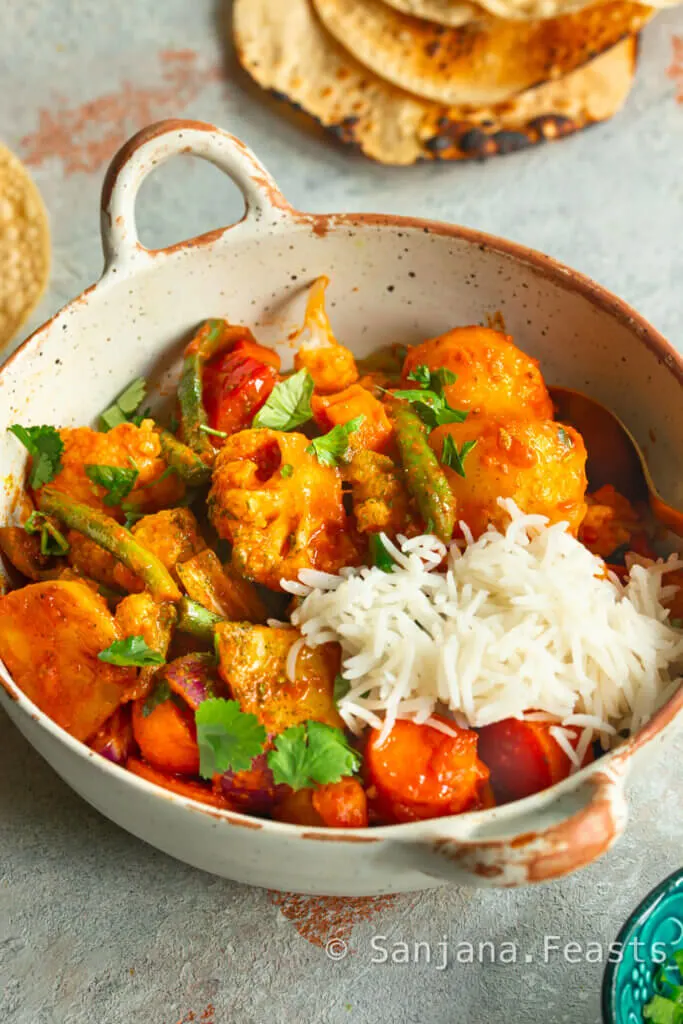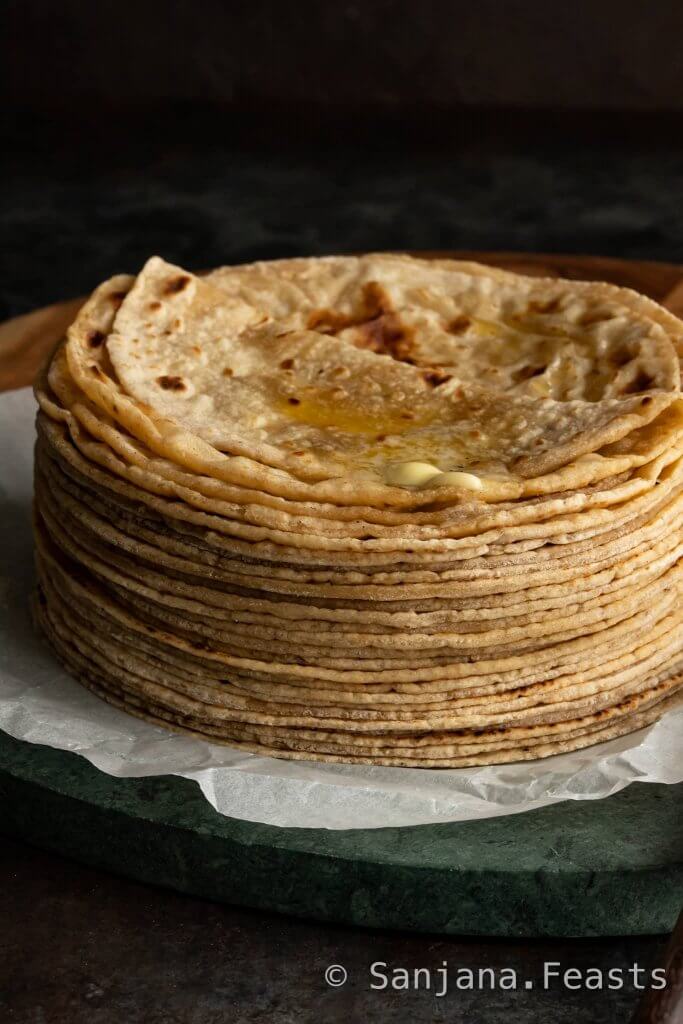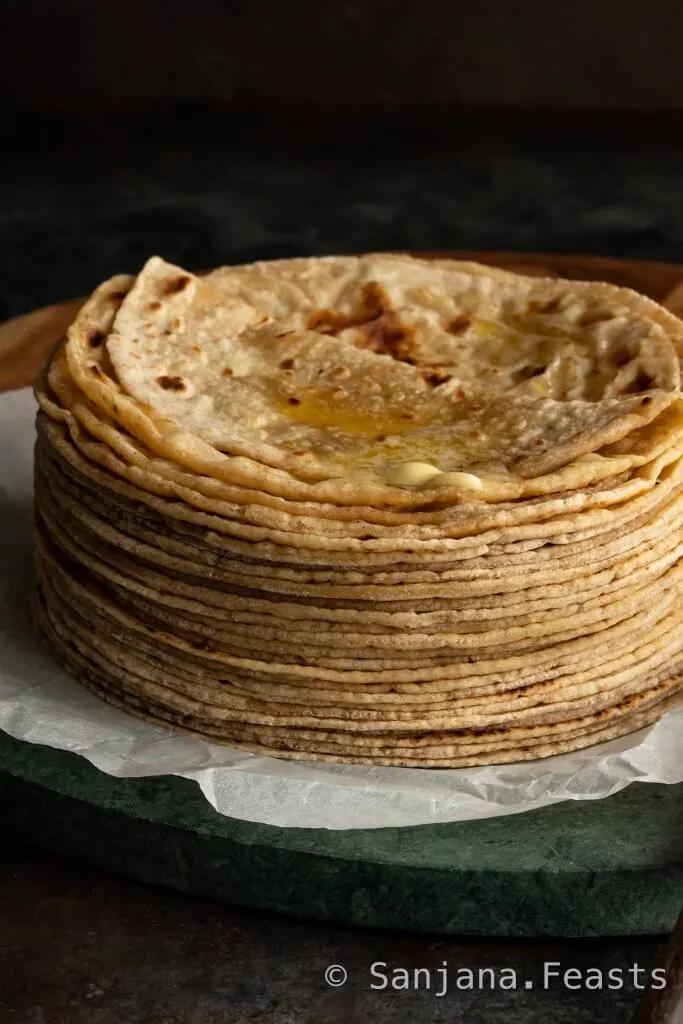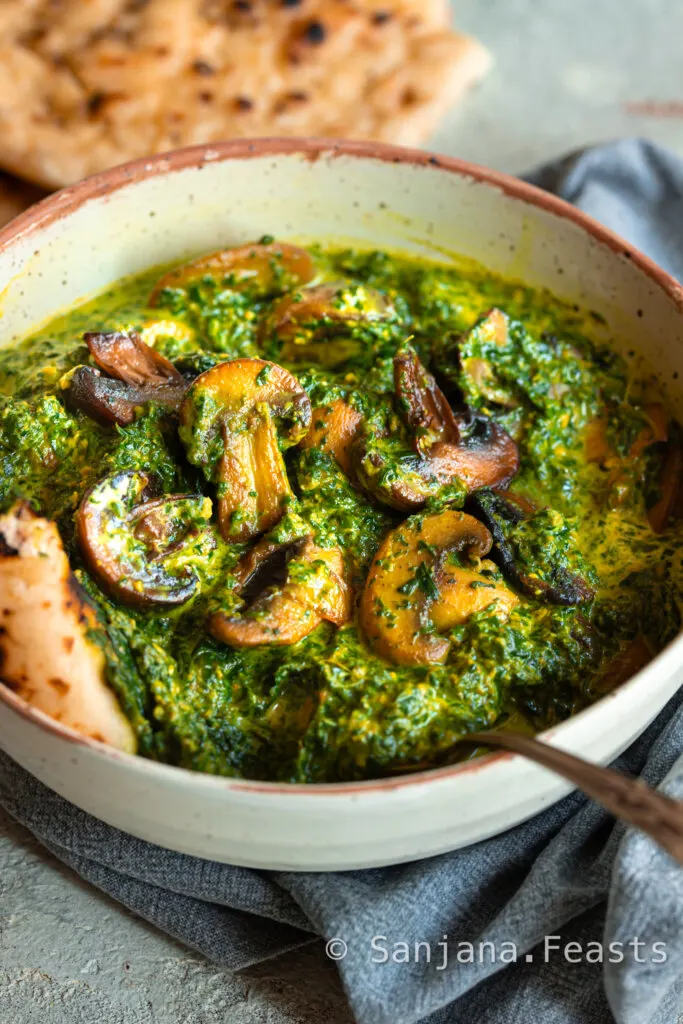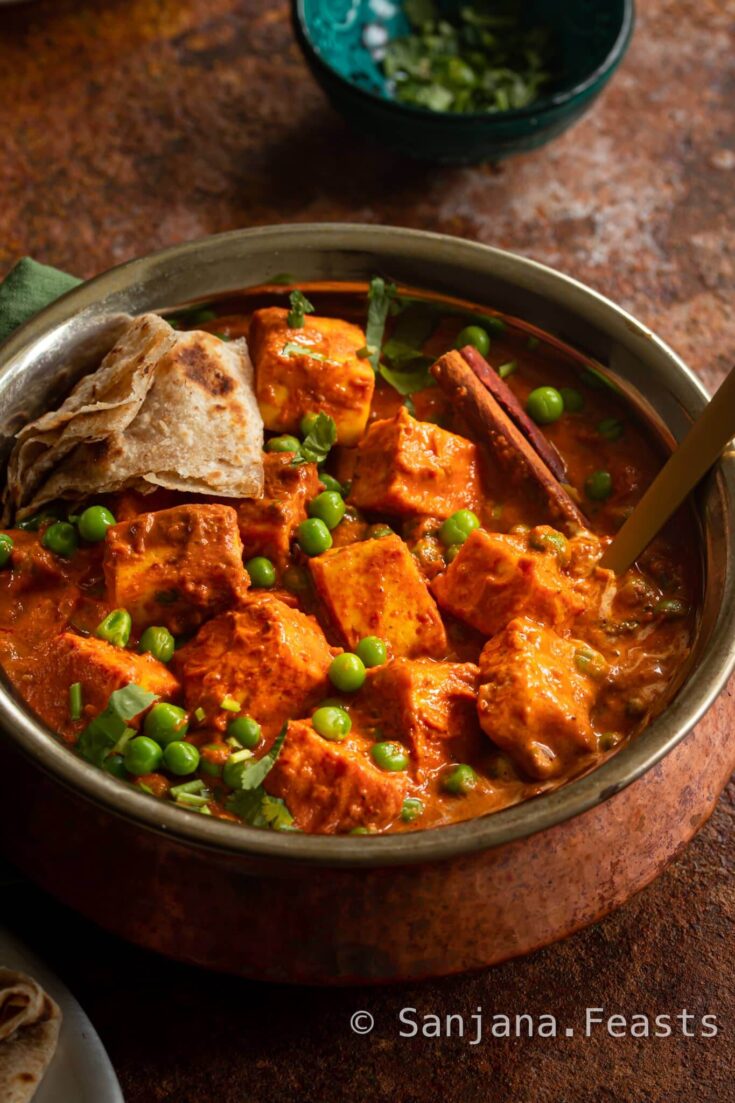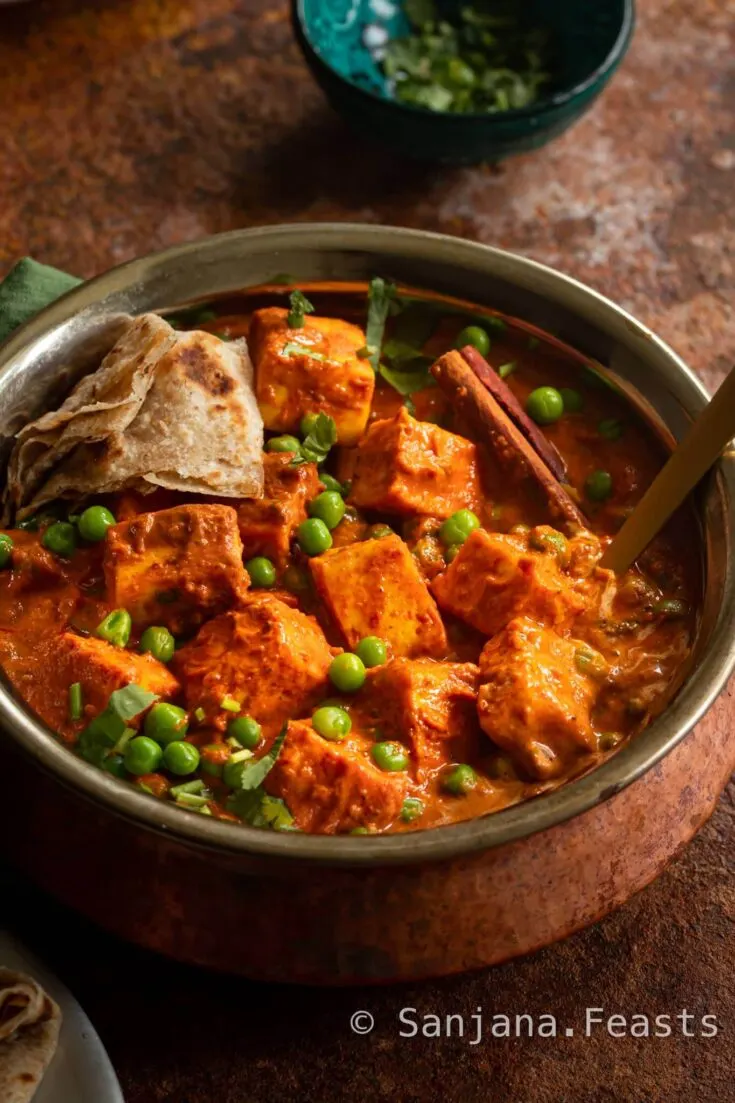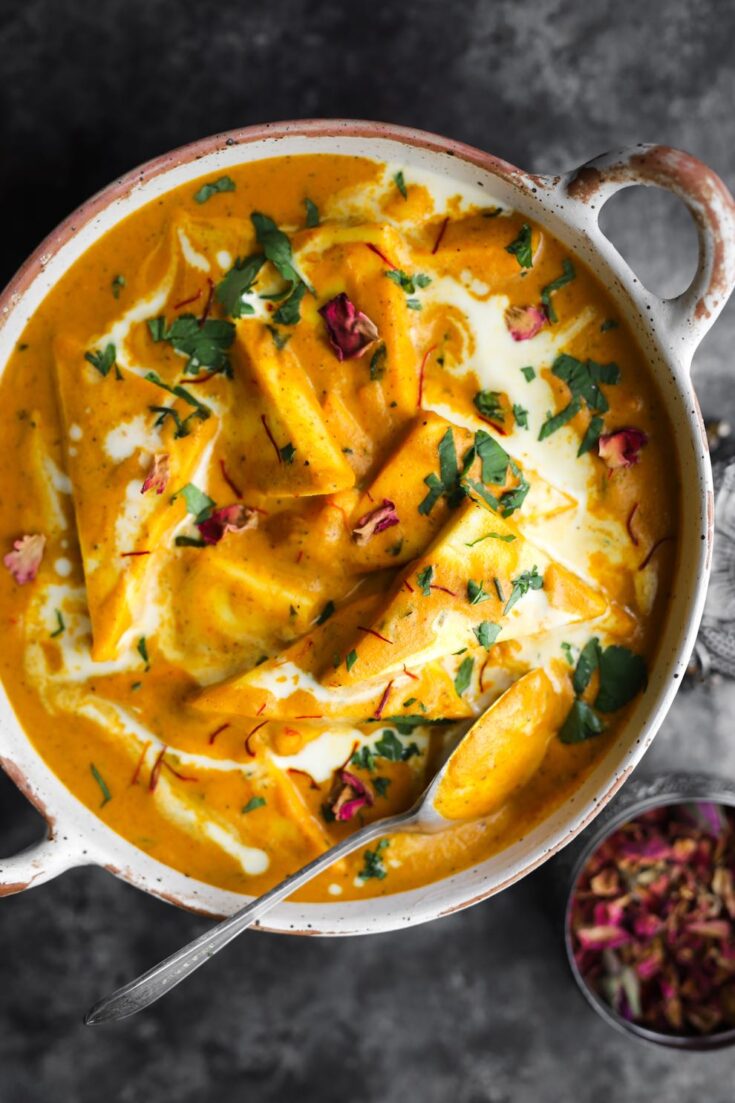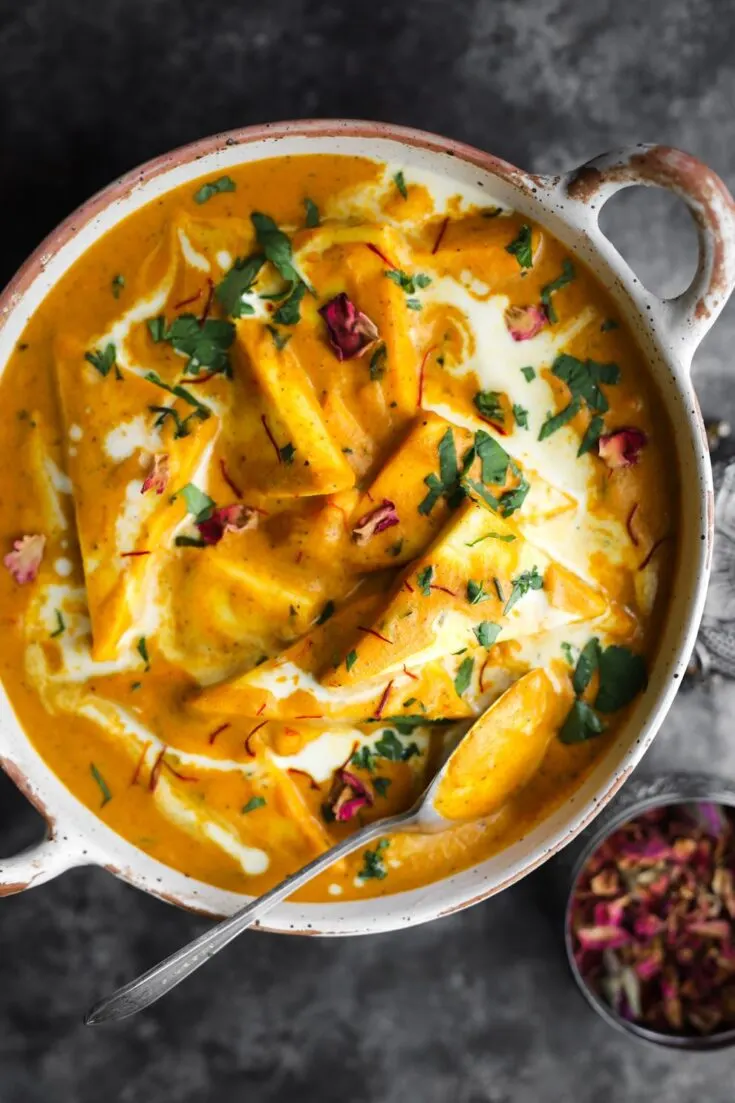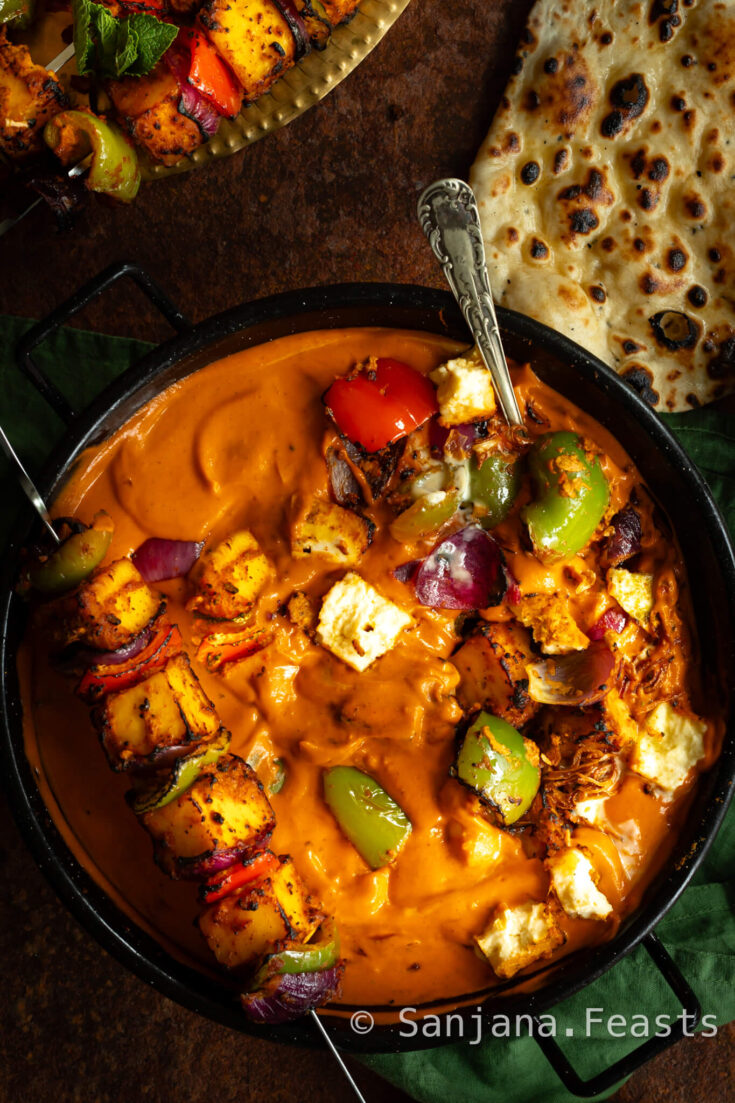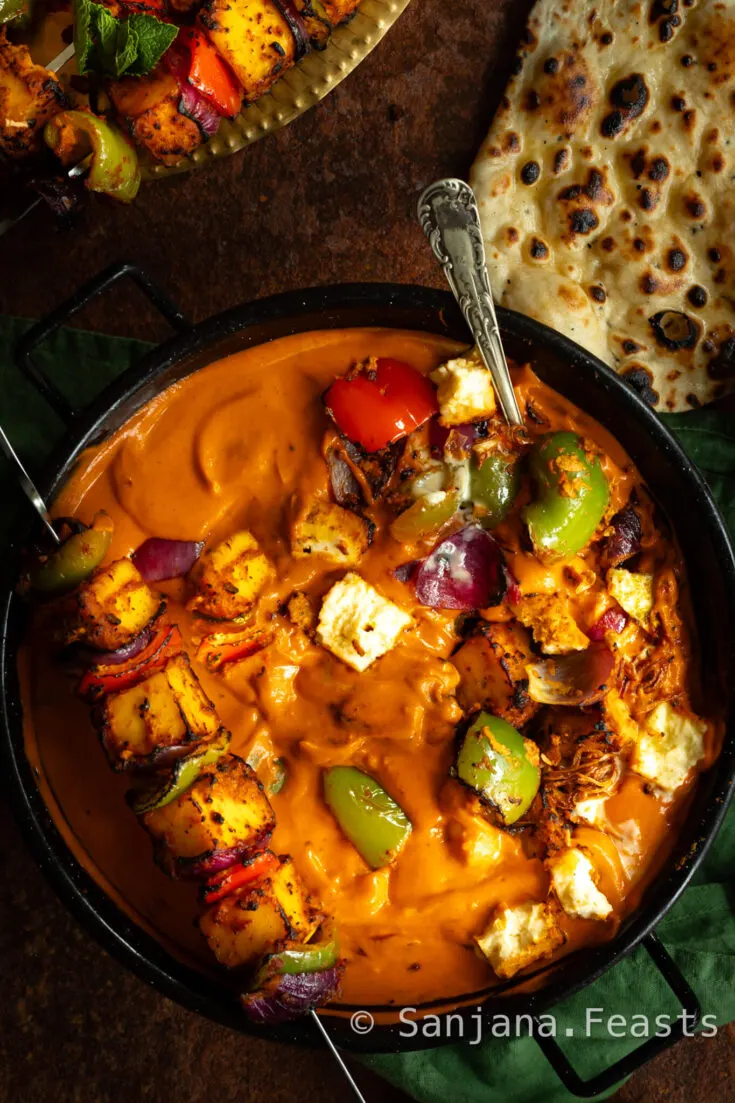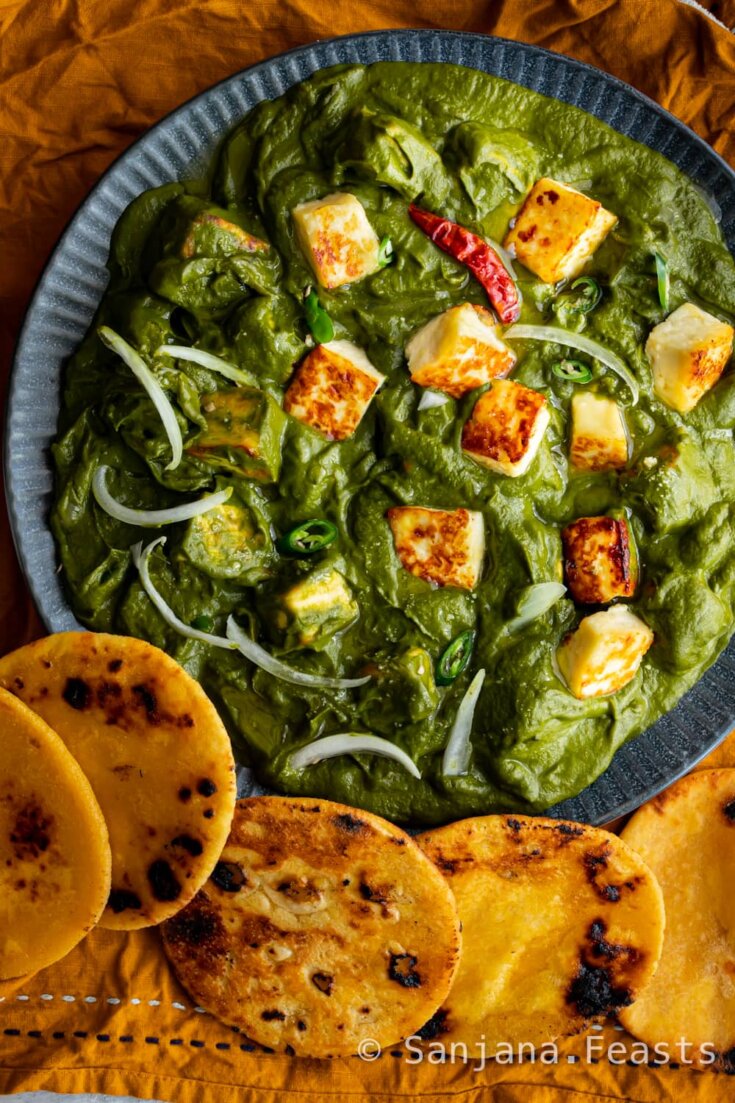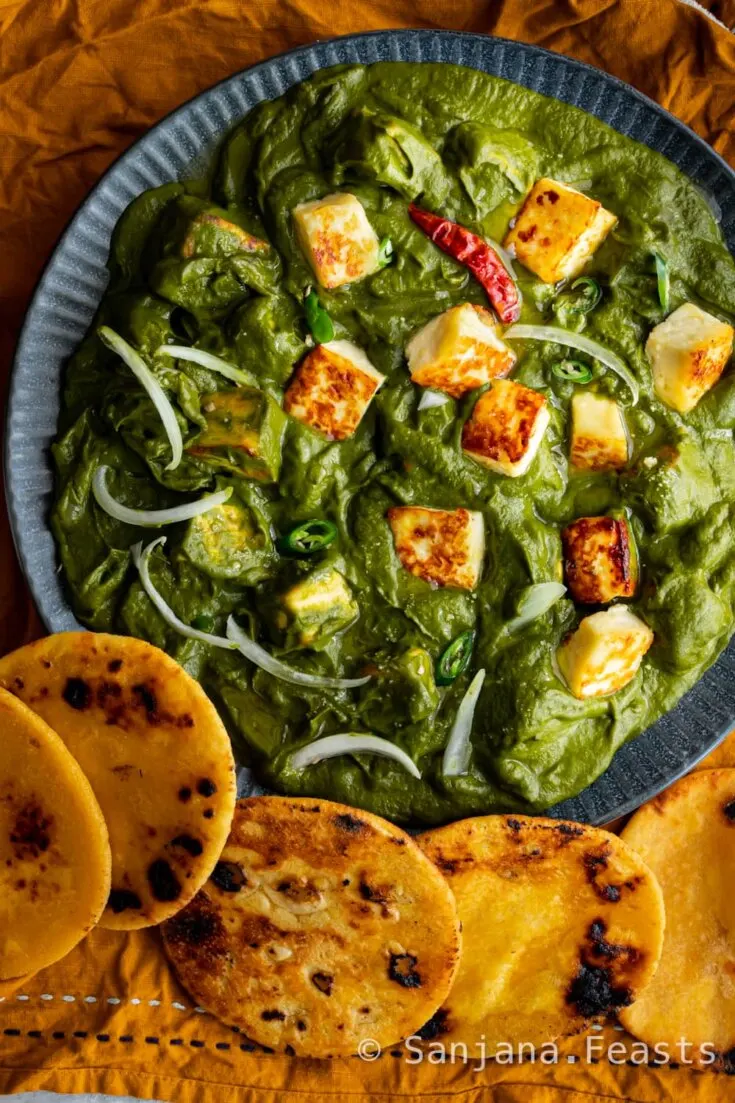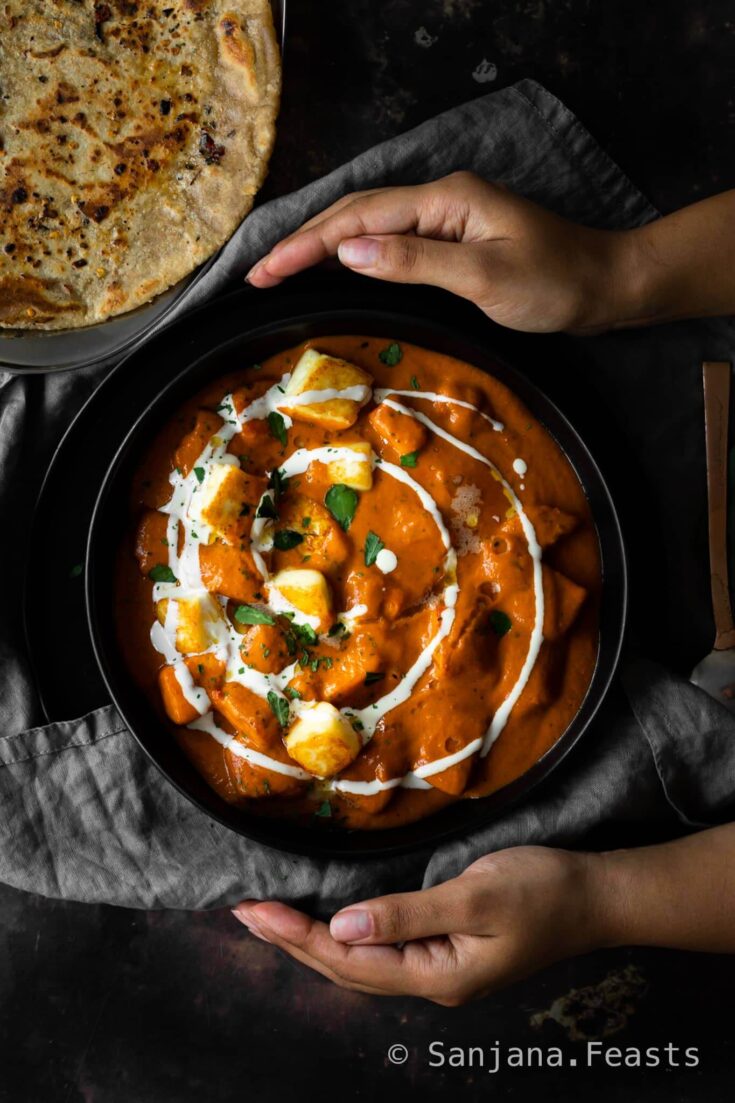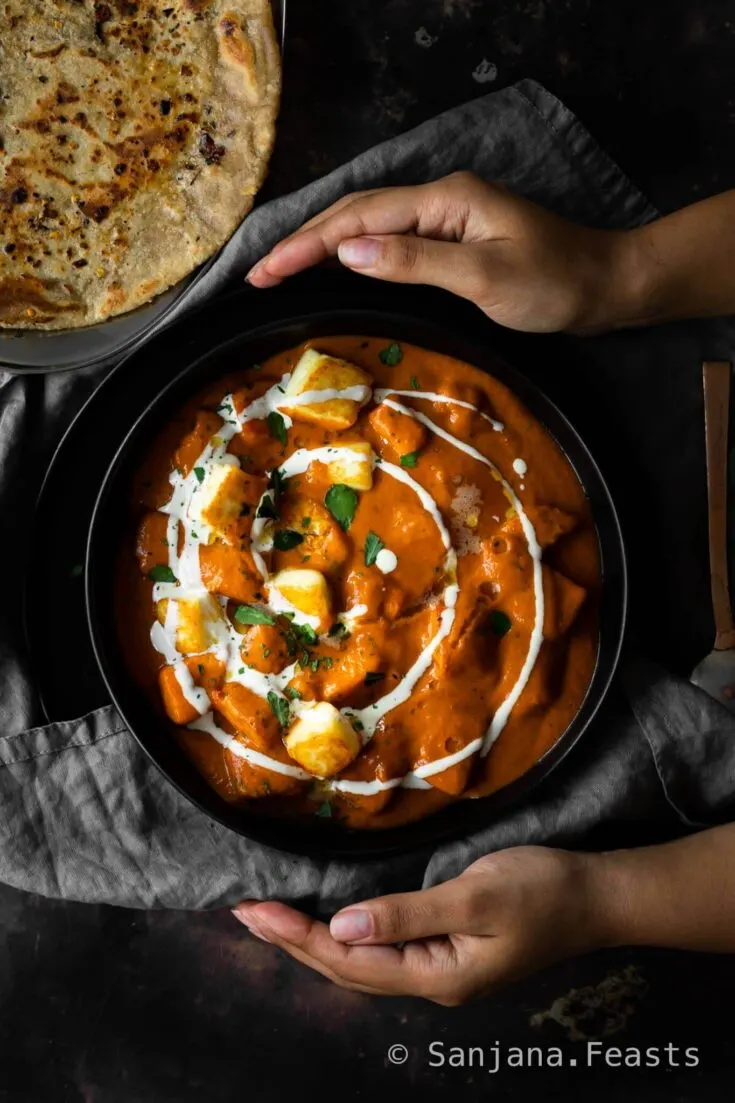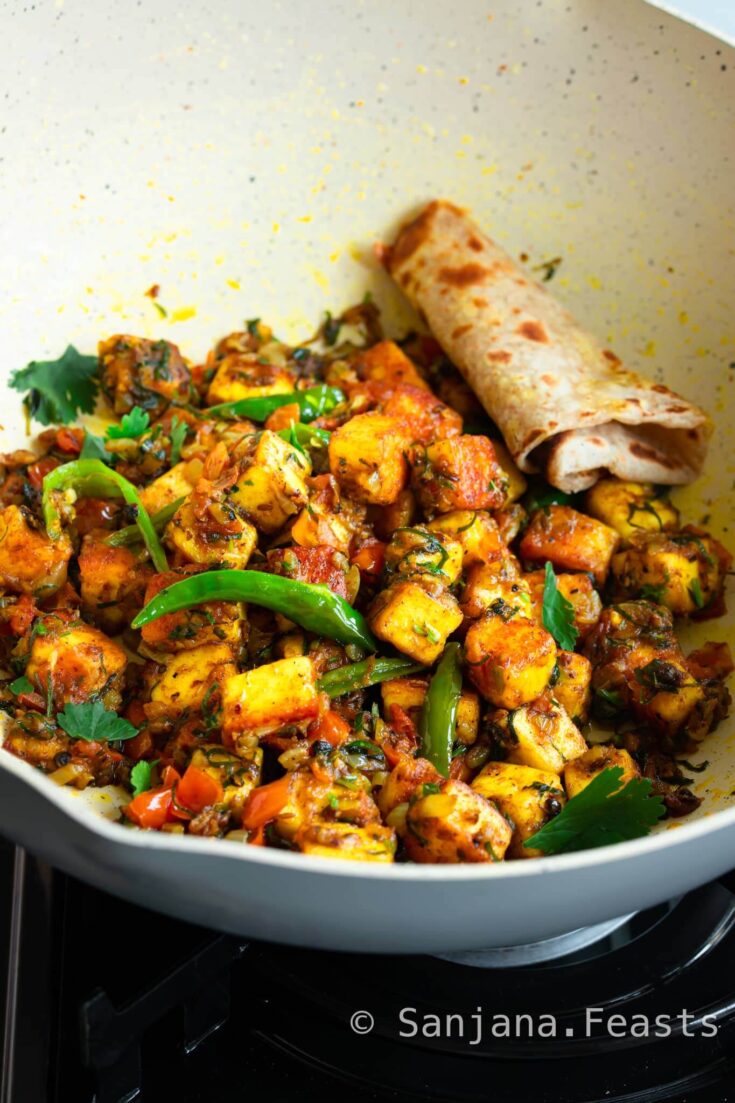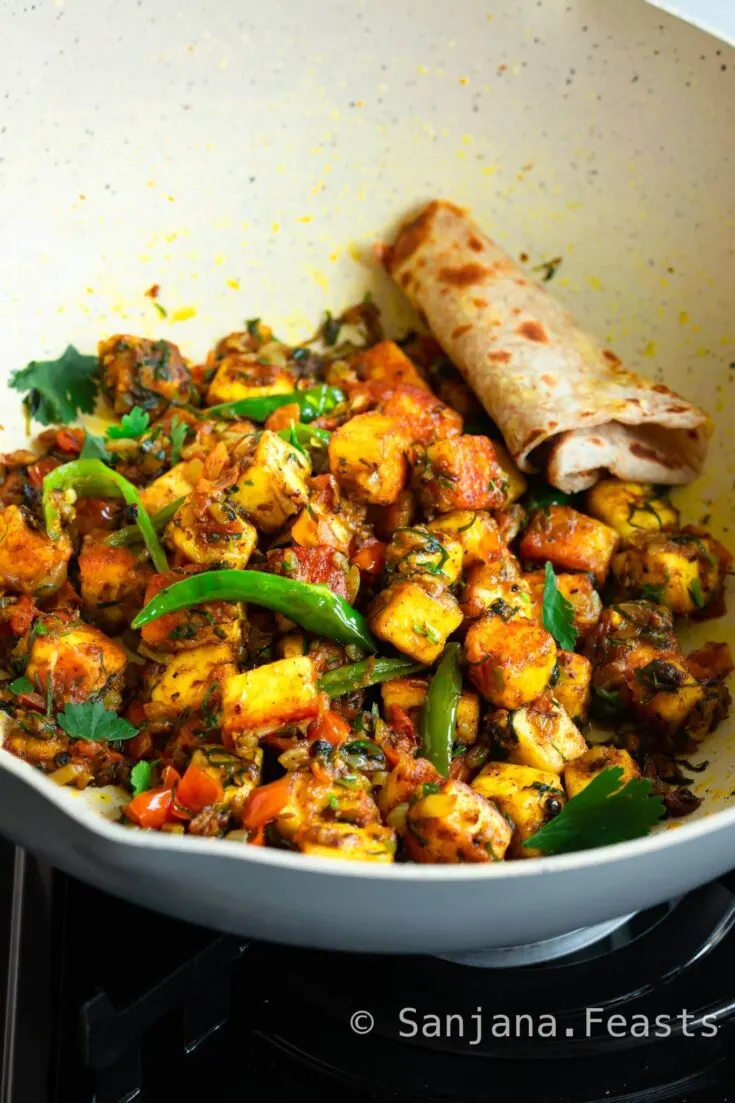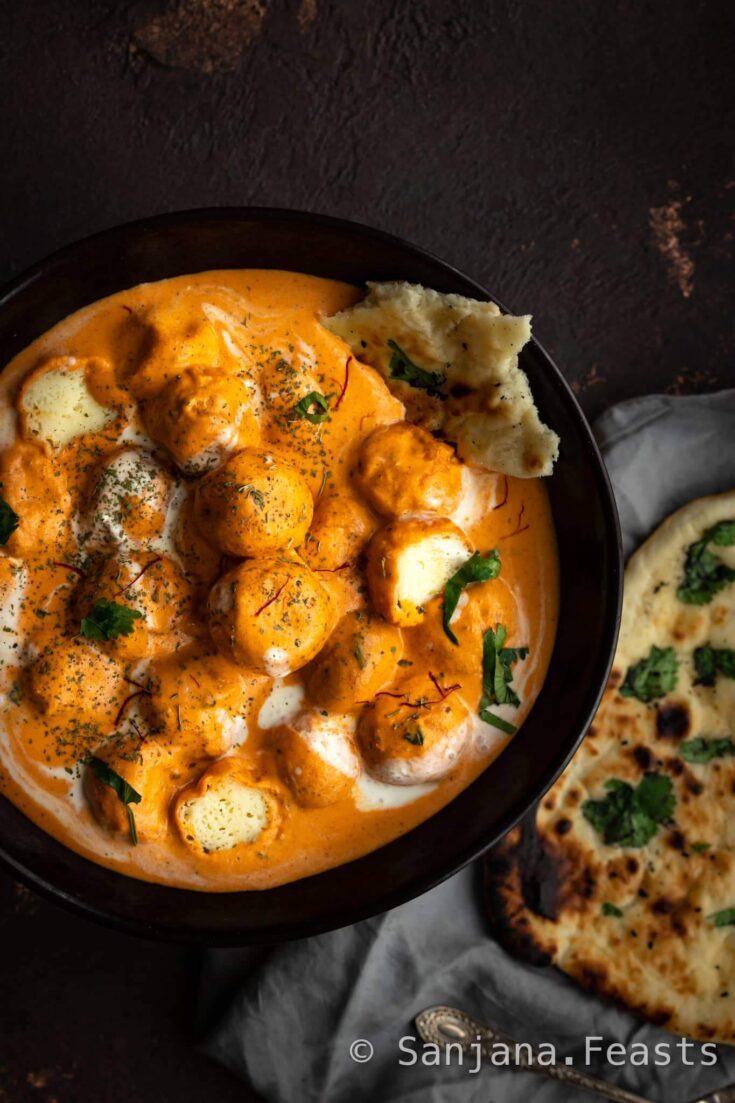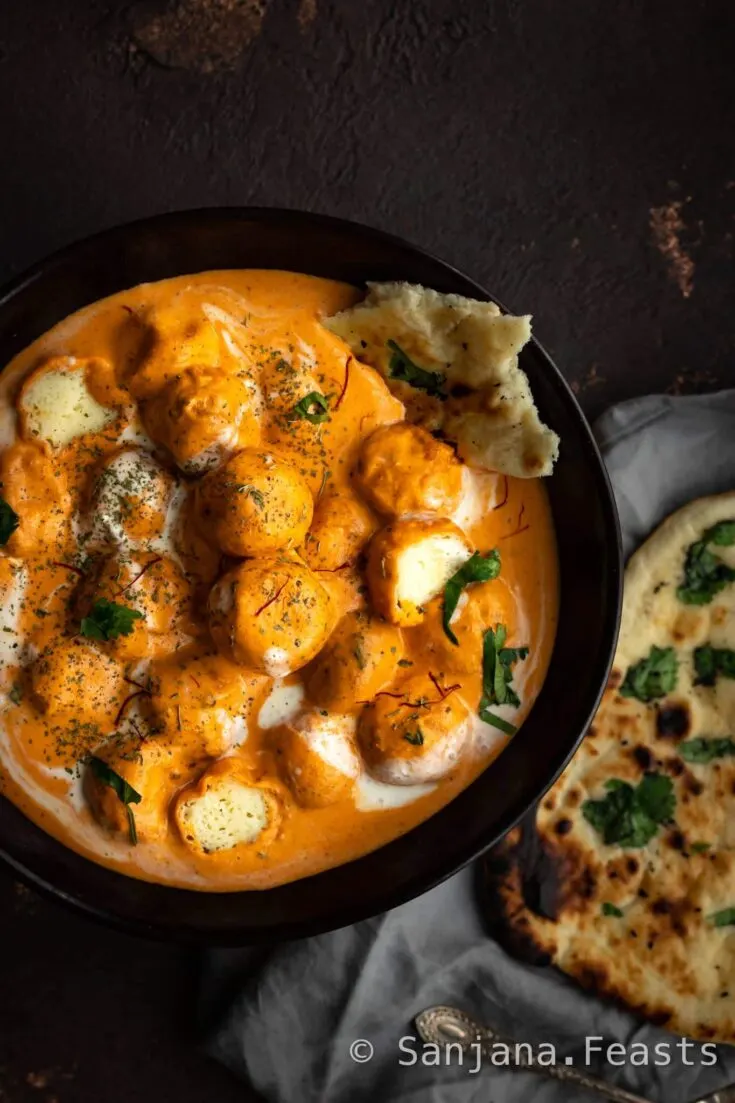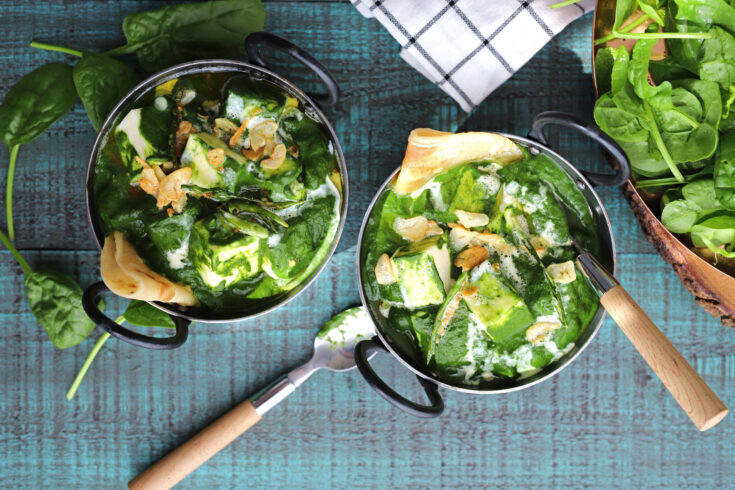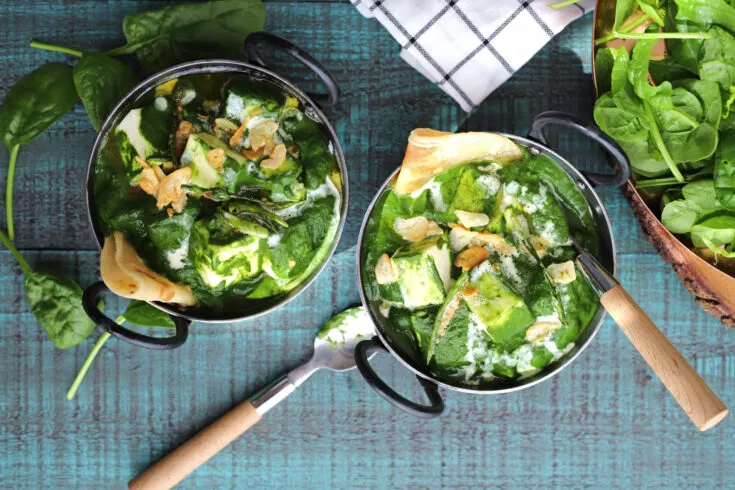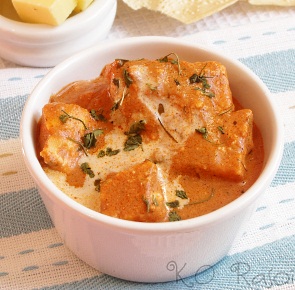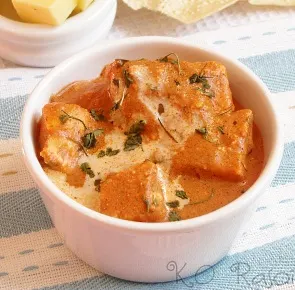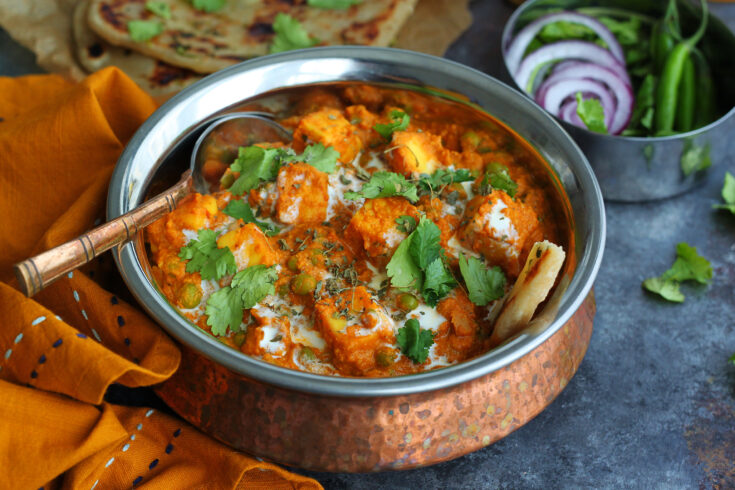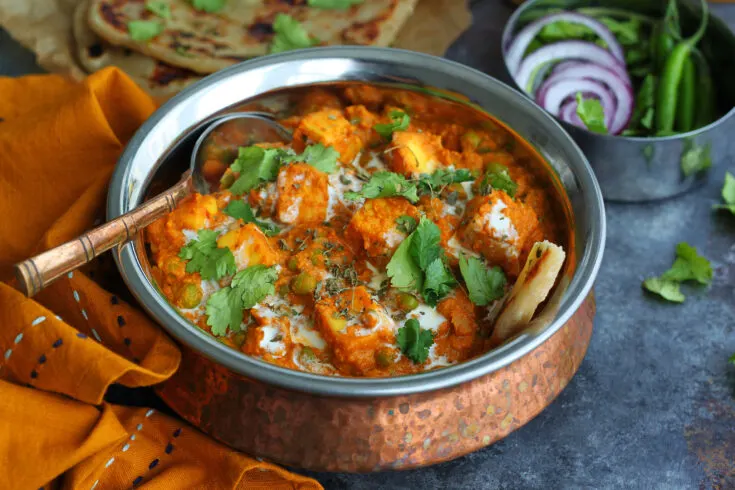Prepare this dish with any veggies you have in the fridge, freezer or pantry. Vegetable Curry is typically served with rice, naan, paratha or roti, but feel free to choose your favourite accompaniments.
This Vegetable Curry Recipe is…
Easy Versatile – use any vegetable you have! Traditional, with aromatic Indian flavours Vegetarian Gluten free
Vegetable Curry for a crowd
The beauty of vegetable curry lies in its adaptability. Use seasonal veg to make a budget-friendly meal. Here’s a home-style Indian vegetable curry recipe that’s a total crowd pleaser. It’s easy to scale up or down for batch cooking and dinner parties. You can also make it spicy or mild, depending on your taste. This veggie curry recipe is not only delicious, but is also relative to what’s in your fridge, freezer or pantry.
Which vegetables to put in curry?
Sturdy veggies: Potatoes, carrots, peas, and green beans hold their shape well in a curry and add a satisfying bite. Creamy veggies: Cauliflower, courgette (zucchini), and aubergine (eggplant) become beautifully tender and add a touch of creaminess to the curry. Flavour boosters: Bell peppers, onions, and tomatoes add pops of colour and sweetness to the dish. They also play a role in building the base flavour of the curry.
Other options:
Leafy greens: Tender greens like spinach or kale can be added towards the end of cooking for a quick wilt and extra nutrients. Root vegetables: Butternut squash, sweet potato, and turnips add a touch of sweetness and earthiness to the curry. Asian vegetables: Explore options like baby corn, okra, cluster beans, and long beans for a unique texture and flavour profile.
Tips:
Consider cooking time: If using vegetables with different cooking times, pre-cook the harder vegetables (like potatoes) before adding them to the curry. Think about texture: For a well-rounded curry, include a mix of soft and crunchy vegetables. Don’t be afraid to experiment! The possibilities are endless.
Give you Vegetable Curry a boost of protein!
Increase the protein content of your vegetable curry by swapping a handful of vegetables with a handful of beans, lentils, paneer or tofu.
How to make a vegan version
For a vegan option, use soy or oat cream in place of double cream.
Can you freeze vegetable curry?
To freeze: Pack the curry into a freezer-safe container and freeze for up to 3 months. Defrost at room temperature or in a pan fitted with a lid. Ensure the curry is piping hot before serving. Note that if you add starchy root vegetables like potatoes to vegetable curry, they may loose some of their texture from being frozen and defrosted. Consider skipping them and adding chickpeas, butter beans or aubergines instead.
More vegetable curry recipes
Matar Paneer recipe Spinach and Mushroom Curry recipe Cabbage & Potato Curry recipe Mung Bean Curry recipe
What to serve with Vegetable Curry
Rice: Basmati rice is a fluffy and fragrant choice that perfectly soaks up the curry sauce. You can also opt for brown rice for a fibre-rich option. Flatbreads: Naan and roti are soft flatbreads traditionally served with Indian curries. They’re perfect for scooping up all the goodness.
Refreshing Sides:
Raita: This cooling yogurt-based condiment with cucumber, mint, or other vegetables is a classic Indian accompaniment to curry. It provides a refreshing contrast to the spicy flavors. Salad or Kachumber: A simple green salad with a light vinaigrette is a great way to add some greens and freshness to your meal.
Indian Vegetable Curry Recipe | How to Make Vegetable Curry
If you like this, you’ll love my recipe for Easy Spinach Curry with Mushrooms
More delicious Indian curry recipes
Share this recipe
Store leftovers in an airtight container, refrigerated for up to 3 days.To freeze: Pack the curry into a freezer-safe container and freeze for up to 3 months. Defrost at room temperature or in a pan fitted with a lid. Ensure the curry is piping hot before serving.Boost the protein content of your vegetable curry by swapping a handful of vegetables with a handful of beans, lentils, paneer or tofu.For a vegan option, use soy or oat cream in place of double cream.
This recipe for Matar Paneer is also easy to make, making it an amazing option for home cooks or people new to Indian food. Matar Paneer is typically served with rice, naan or roti, but feel free to choose your favourite accompaniments. If you’re not a bread lover, this Shahi Paneer also pairs beautifully with rice, should you wish to opt for a simple curry and rice bowl for dinner. Pieces of paneer (cottage cheese) and vegetables are first marinated in yoghurt and spices, and then skewered and grilled to smoky perfection. The tikka pieces are then removed from the skewer and folded into a creamy curry sauce made with tomatoes, spices and cream. Here’s an easy to follow video recipe and video. Saag Paneer is the more character-laden cousin of Palak Paneer, made with mixed greens like mustard leaves (sarson) instead of spinach alone. The velvety texture and subtle spicing of this recipe for Saag Paneer ensures the peppery mustard leaves and juicy paneer are the true stars of the show. Combine aromatic spices with a creamy cashew and tomato base, gently brown some butter in a pan and create the Makhani-style sauce of your dreams. This is the only way I’ll make Paneer Makhani from now on. A kadai-fried curry like this (without too much sauce) is perfect to serve with naan, roti or paratha. I even like using it as a dosa filling when making Paneer Masala Dosa. If you prefer your Paneer Curry with a thick Indian gravy, try Paneer Makhani or Matar Paneer. My simple paneer and potato kofta are golden on the outside and a brilliant white colour on the inside. Each bite is soft, a little spongy and slick with a smooth and creamy tomato sauce. In my home, Malai Kofta is an essential curry for special occasions. This Indian vegetarian curry of paneer (cheese) and potato kofta is a real celebration of rich flavours and warming spices. The trick to a super green sauce is to cook the spinach as little as possible. Just apply enough heat to wilt it at the beginning and heat the finished sauce just to warm all the ingredients through. Hand me a teardrop sheet of puffy, soft naan to mop up all of that sauce and I’m in seventh heaven. The base gravy for this Matar Paneer recipe contains ground almonds and tomatoes for a delectable creaminess and sharp tang. The spicing is warm but complex, making you wonder if you really just made that at home in the comfort of your own kitchen, without having to go to a restaurant or pick up a takeaway menu. Mad skills.

